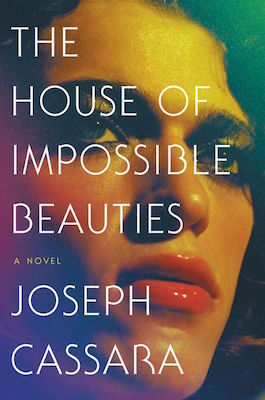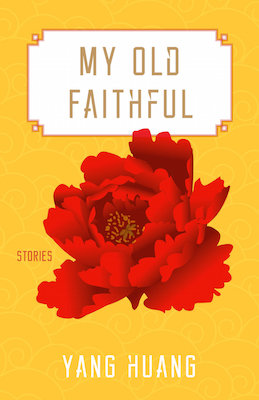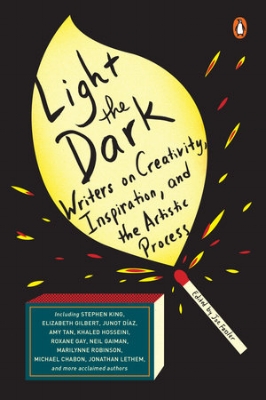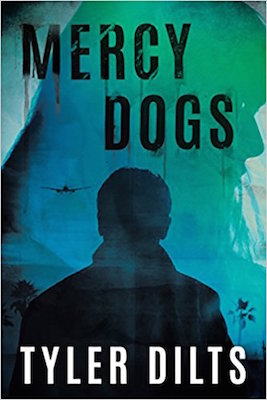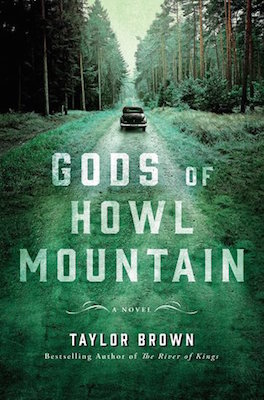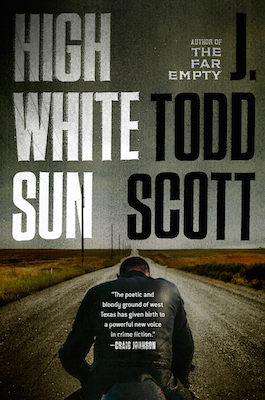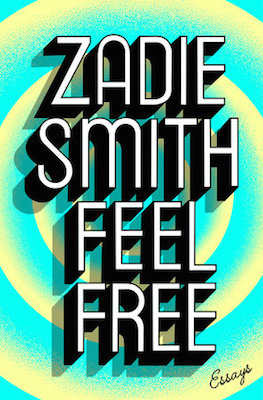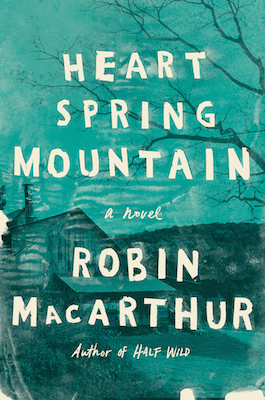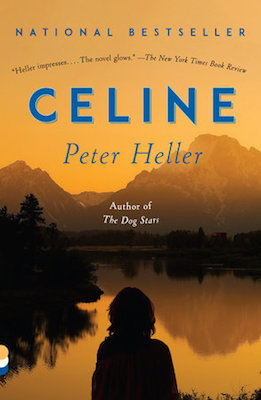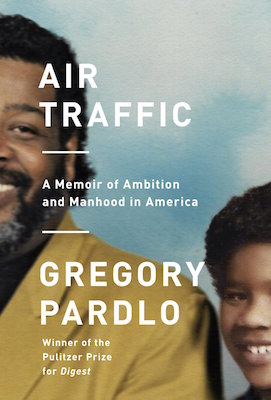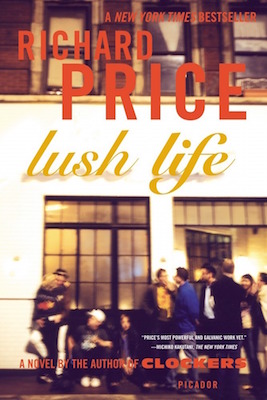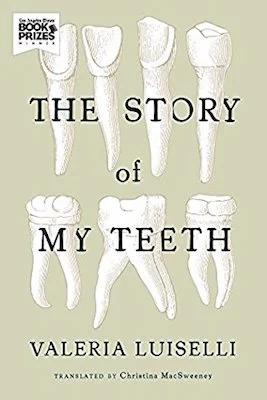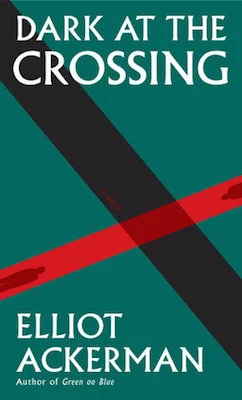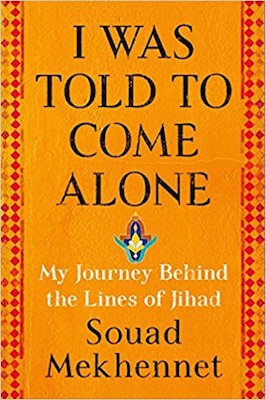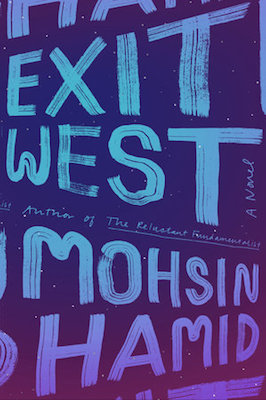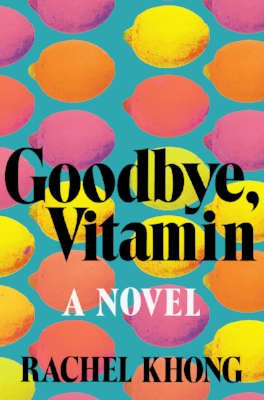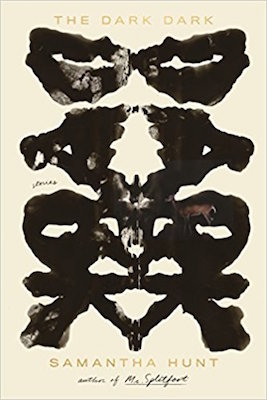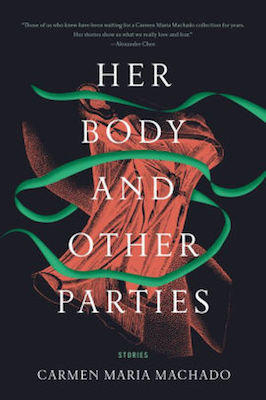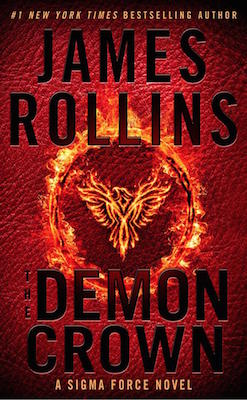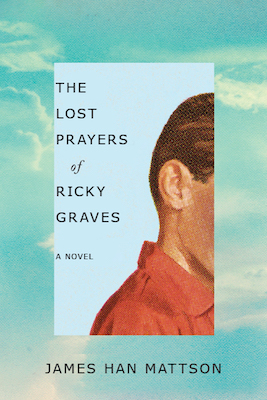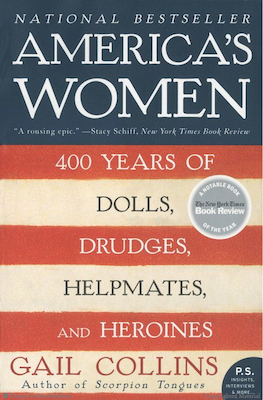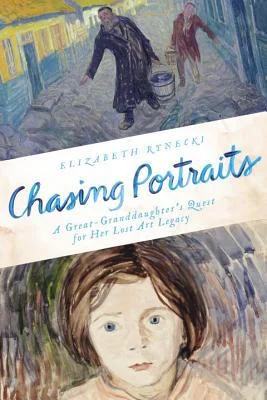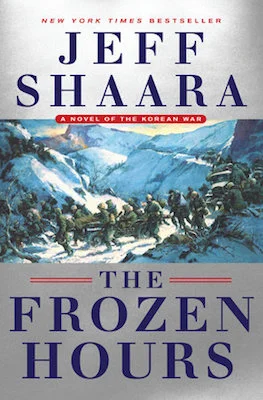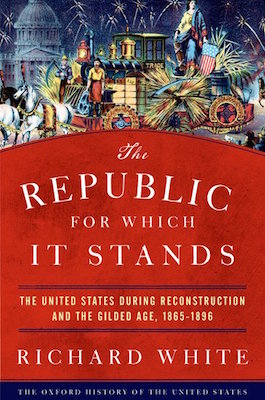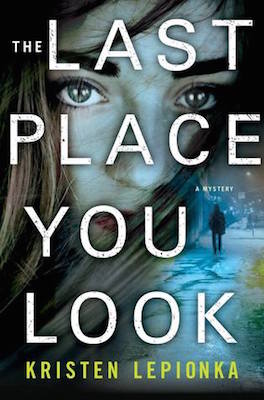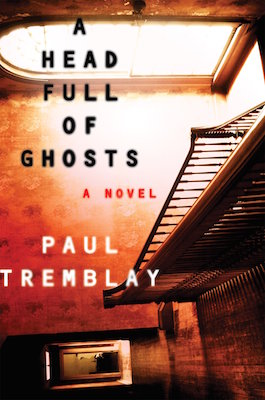The 50 Best Books of 2018
16 Books That Should Be On Your Radar: December 2018
19 Books That Should Be On Your Radar: November 2018
17 Books That Should Be On Your Radar: October 2018
18 Books That Should Be On Your Radar: September 2018
23 Books That Should Be On Your Radar: August 2018
22 Books That Should Be On Your Radar: July 2018
16 Books That Should Be On Your Radar: June 2018
16 Books That Should Be On Your Radar: May 2018
17 Books That Should Be On Your Radar: April 2018
17 Books That Should Be On Your Radar: March 2018
Every month, the Writer’s Bone crew reviews or previews books we've read or want to read. This series may or may not also serve as a confessional for guilty pleasures and hipster novels only the brave would attempt. Feel free to share your own suggestions in the comments section or tweet us @WritersBone.
The Fighter by Michael Farris Smith
Daniel Ford: Pardon the pun, but Michael Farris Smith’s latest novel The Fighter (out March 20 from Little, Brown and Company) knocked me out cold. Southern noir just doesn’t get much better than this. We’ve been following Smith’s work since his debut Rivers, and it’s been a true pleasure seeing his work progress with each new novel. The Fighter is an intense read for myriad reasons, and you’ll have to set it down a time or two to swig a shot of bourbon or take a cold shower, but Smith infuses this book with the honest, empathetic humanity that’s become the hallmark of his fiction. This is no holds barred, campfire storytelling, and, frankly, I’m jealous as hell that Smith is so good at what he does.
I'll Be Gone in the Dark by Michelle McNamara
Daniel: I made the mistake of reading the late Michelle McNamara’s I’ll Be Gone in the Dark right before going to bed. I made sure my trusty Louisville Slugger was close by before I finally shut my eyes (after jumping at every shadow, of course). Sean Tuohy and I interviewed McNamara way back in 2014, and we came away from that discussion convinced she was more passionate about her work than anyone we had talked to up to that point (and maybe since). To see her words in print a few years after her death is a surreal experience, but a welcome one. Yes, McNamara’s investigation into the Golden State Killer takes her into some shadowy corners, however, owing to McNamara’s natural inner light, the reader never feels completely engulfed in darkness. I'll Be Gone in the Dark is an exceptionally well-crafted and researched narrative by a skilled writer and investigator who was taken from us much, much too soon.
All the Pieces Matter by Jonathan Abrams
Daniel: What better way to explore “The Wire,” truly the greatest television show ever made, than with an oral history? Jonathan Abrams’ discussions with the cast and crew yielded just as much magic as what ended up on the small screen. Andre Royo’s protective and brotherly feelings toward his character Bubbles. Idris Elba literally drinking J.D. Williams under the table. David Simon fighting with HBO in order to write and execute his exact vision. The City of Baltimore embracing a cinematic version of itself that hemmed closer to reality than any show on record. Fans of “The Wire” will love every word, and every television junkie will appreciate the craft and love that went into making it.
The Book of Unknown Americans by Cristina Henriquez
Melanie Padgett Powers: I read this book while traveling to Guatemala, which was fitting because it's about Latin American immigrants in the United States. It’s lovely and poetic, but sad and frustrating because of its timeliness. It really brings home what immigrants are facing in this country today. The book focuses on one family, but after a while you start to learn about their neighbors’ stories too. These are fully developed characters with lives you rarely see portrayed in books and whom most of us don’t get to know in real life. For that alone, it’s worth a read.
Speak No Evil by Uzodinma Iweala
Daniel: Uzodinma Iweala’s incredibly powerful second novel Speak No Evil is staring at me right now. I feel like it’s been glaring at me since I finished it. His characters are still speaking to me, and his narrative is still punching me in the gut. Iweala’s first novel Beasts of No Nation was adapted as a Netflix original, and readers will be lucky if that happens again with this novel. Just masterful and utterly devastating.
The House of Impossible Beauties by Joseph Cassara
Adam Vitcavage: Set in at the rise of drag culture in the late-1980s, The House of Impossible Beauties by Joseph Cassara liberally takes historic members of the Latin New York City club scene and reinterprets them. Anyone who thinks this novel will simply be about drag competitions or the club scene will quickly learn it is a family drama. Angie and Hector Xtravaganza want to create a safe space for people like them. They are joined by a sensitive trans girl named Venus, a fashionista named Jaunito, and a butch queen named Daniel. There are only flashes of the club world. Instead, the novel follows the main characters navigating their personal lives. They turn to turning tricks near the piers to pay for money, attempt to pass as female models, and learn that love is even more complicated than they thought.
My Old Faithful by Yang Huang
Daniel: I marveled at what Yang Huang was able to pack into her slim short story collection My Old Faithful. Huang’s exploration of a close-knit Chinese family through everyday experiences (both in China and the United States) is expertly wrought, and her themes are as timely as they are timeless. The author employs an earthy, subtle humor that suggests an older soul at work. Very much looking forward to Huang’s appearance on the show so I can figure out how she pulled it off!
The Beloved Wild by Melissa Ostrom
Daniel: Author James Tate Hill doesn’t mess around with book recommendations. When he shares a book with us, we know it’s going to be great. Melissa Ostrom’s young adult novel The Beloved Wild (out March 27 from Feiwel & Friends) is no exception. Harriet Winter, the novel’s indomitable main character, is so determined to decide her own future that she leaves home with her brother disguised as an orphan named Freddy. Ostrom charmingly crafts a tale filled with internal and external battles, and it’s no surprise that Publisher’s Weekly called the book, “Pride and Prejudice with a western backdrop.”
Light the Dark: Writers on Creativity, Inspiration, and the Artistic Process by Joe Fassler (ed.)
Daniel: I picked up Joe Fassler’s Light the Dark at Sherman’s Books, one of my favorite bookstores in Portland, Maine. This book has been on my radar ever since Caitlin Malcuit’s interview with Fassler last September. I always look for an added dose of literary inspiration while on vacation, and this collection ended up being the perfect complement to treats from The Holy Donut. Fassler asked some of today’s best known authors, “What inspires you?” The answers, from the likes of Stephen King, Junot Diaz, and Roxane Gay, will be buzzing in your head long after the caffeine (or in my case, sugar) leaves your system.
Second Wind: A Sunfish Sailor, an Island, and the Voyage That Brought A Family Together by Nathaniel Philbrick
Daniel: Nathaniel Philbrick, author In the Heart of the Sea, Bunker Hill, and Mayflower, is one of my favorite writers. I was completely charmed by his personal memoir Second Wind, which was recently re-published by Penguin Books. I don’t know anything about sailing, but, being an author myself, I know a thing or two about persistence in the face of adversity and disappointment. Philbrick’s quest to reestablish his Sunfish sailing bona fides is not only filled with watery mishaps and questionable navigation, but also spirited family competition and bonding. The author always infuses his historical narratives with some of history’s more colorful characters, but I’m glad to see his own personality on full display here.
Turtles All the Way Down by John Green
Melanie: As a native Hoosier and fan of the movie “The Fault in Our Stars,” I have been curious about John Green for several years. When he first started publishing his books, I was too old to be in his young adult audience, but any avid reader certainly heard how he was changing people’s perceptions of young adult books. Reading Turtles All the Way Down makes me want to search out more of his books.
In this book, he gives us Ava, a 16-year-old girl with a severe anxiety disorder that affects her relationships with everyone around her, including her mother, best friend and a former friend she reconnects with. Green has OCD, which allows him to know exactly how to put Ava’s anxiety into words that many of us can relate to—or learn how our loved ones with anxiety feel. I quickly developed a big sisterly love toward Ava and her friends, and I cheered her on as she struggled with her disorder while also trying to play “Encyclopedia Brown” and unravel a local mystery.
Call Me Zebra by Azareen Van der Vliet Oloomi
Daniel: Azareen Van der Vliet Oloomi’s Call Me Zebra is deliciously erudite. Her use of language and her word choices perfectly match her characters. The story centers on Zebra, an Iranian exile living in New York City. The hyper-educated heroine is the keeper of her family’s vast knowledge, and attempts to retrace the journey she took with her father en route to the United States years before. I’ve been slow-reading this book, not wanting to rush through my time with Zebra and the rest of the novel’s eclectic cast of characters. I’ve laughed. I’ve gotten misty. By the time I’m finished, I know I’m going to be ready for more from this exceptional new voice.
Mercy Dogs by Tyler Dilts
Daniel: Find a fedora. Eat a good meal in Southern California (perhaps at one of Danny Beckett's favorite joints). Dig into Mercy Dogs. Repeat.
Author’s Corner
By Michael Farris Smith, author of The Fighter and Desperation Road
Gods of How Mountain by Taylor Brown
Taylor Brown writes like the landscapes he creates, the winding rivers and misty mountain tops want to drift into romance, but that ain’t gonna happen. His stories are wound with love and despair and I don’t expect this to be any different. (Gods of How Mountain is out 3/20 from St. Martin's Press.)
High White Sun by J. Todd Scott
You can’t help but get a little dust in your mouth when you’re reading about the reckless Texas of J. Todd Scott. High White Sun (out 3/20 from G.P. Putnam's Sons) is the follow up to The Far Empty and I can already feel the hot Southwestern wind pushing against my face.
Country Dark by Chris Offutt
I’m sneaking out of March and into April (April 10 to be exact) with this one. Country Dark is Chris Offutt’s return to fiction after too much time away, and this is a story that will make you grit your teeth and open your heart, at the same time.
NovelClass
Listen to the Season 2 premiere of NovelClass, live from The Dean Hotel in Providence, R.I.!
Also, start reading Swamplandia! by Karen Russell and tune into Dave Pezza and Caitlin Malcuit’s discussion on March 26.
18 Books That Should Be On Your Radar: February 2018
Every month, the Writer’s Bone crew reviews or previews books we've read or want to read. This series may or may not also serve as a confessional for guilty pleasures and hipster novels only the brave would attempt. Feel free to share your own suggestions in the comments section or tweet us @WritersBone.
How to Stop Time by Matt Haig
Daniel Ford: On the surface, knowing that you’re going to live for a couple hundred years (or more) sounds pretty awesome. However, as you march through time, you’ll likely be faced with some of the same questions Tom Hazard grapples with in Matt Haig’s new novel How to Stop Time. Sure, you may be lucky enough to have drinks with William Shakespeare or F. Scott Fitzgerald, but how many people can you stand to lose? How are you going to live with decisions that set the course of decades, or even centuries, of your life? As Tom discovers, his “gift” is much more a curse than anything else. While Haig does infuse his main character, and much of his narrative, with a sweet melancholy, he also builds time and time again to a hopeful crescendo. Haig beautifully balances an in-depth character study with a thrilling plot that weaves in and out of history and time.
An American Marriage by Tayari Jones
Daniel: Believe the hype—Tayari Jones’ An American Marriage is exceptional. This novel was on our radar even before Oprah picked it for her book club earlier this month! Appearing as though they are the embodiment of the American Dream, Celestial and Roy’s marriage is already showing signs of strain when Roy is wrongly imprisoned for a crime he didn’t admit. The nuanced and layered narrative that follows Roy’s incarceration and beyond speaks to Jones’ extraordinary gifts as a storyteller. She explores all of the characters that populate this book from every angle in an empathetic, honest way, while also subtly and poignantly commenting on marriage, friendship, and black life in America.
Back Talk by Danielle Lazarin
Daniel: Short stories, when done right, leave you wanting more. I demand novels featuring all of the women found in Danielle Lazarin’s incredible debut collection Back Talk. There’s not a bad note in any of these stories.
All the Names They Used for God by Anjali Sachdeva
Adam Vitcavage: Across nine exquisitely surreal stories (out Feb. 20 from Spiegel & Grau), Sachdeva covers a wide array of characters and settings. The opening story is about a pioneer woman longing for her husband who is away. The title piece is set in modern day war-torn Africa. A later story takes you to the future. Like all good collections, her stories are thematically cohesive. They explore large-scale influences like nature and religion and how they influence us on an everyday basis. Reading the book reminded me of the sci-fi anthology television series “Black Mirror.” Everything is always seemingly normal, but just a little off kilter.
Talking Pictures: How to Watch Movies by Ann Hornaday
Daniel: Talking Pictures by Washington Post film critic Ann Hornaday is essential reading for film buffs. Hornaday dissects filmmaking into its distinct characteristics and explores what critics think about when watching and reviewing a movie. What choices did a director make that paid off (or didn’t)? How much does star power matter when it comes to casting? How do sound, cinematography, and colors work together? Hornaday also includes plenty of examples of both good and bad films, and each chapter will likely make you think about classic movies (or guilty pleasures) in a fresh way.
Eat the Apple by Matt Young
Daniel: Judging by Matt Young’s writing prowess in Eat the Apple (out Feb. 27 from Bloomsbury USA), he could have easily written a more linear, and perhaps more tongue-in-cheek, war memoir that would have fit in nicely with some of the other veteran literature we’ve read the past couple of years. However, owing to his literary chops, Young played with form, structure, point-of-view, and, I’m assuming, his own memories to produce a searing, brutal look into American men at war. I couldn’t help but think of Joshua Mohr’s memoir Sirens while reading Eat the Apple because of how much honesty and thoughtfulness Young brings to moments that read more like Bukowski fiction rather than real life.
The Leavers by Lisa Ko
Daniel: I don’t know what took me so long to read Lisa Ko’s National Book Award-nominated debut The Leavers, but it was well worth the wait. The novel starts with Deming Guo’s undocumented immigrant mother, Polly, leaving for work at a nail salon and never coming home. Ko switches perspectives between Daniel, the name a foster family bestows on Deming, and Polly, whose disappearance is more layered than you can possibly imagine. Needless to say, both characters lives are upended and shaped by this initial act, and their paths are infused with longing, disappointment, anger, regret, and resentment. Ko, of course, offers timely commentary on immigrant life in today’s United States, but also astutely discusses how those themes collide with family, friendship, and finding your true self.
Thief in the Interior by Phillip B. Williams
Daniel: I thought poet Phillip B. Williams’ was a powerful read before I heard him read “Bound” aloud on a recent podcast episode (see below). That’s what I love about poetry; whatever is on the page isn’t static. There’s not only a symbiotic, and constantly changing, relationship with the author and his words, but also a completely independent one that exists between the finished poem and the reader. Williams’ collection Thief in the Interior has a chameleon-like skin, seemingly changing colors and styles line by line, poem by poem. Williams, during our chat, said that poems are never finished—they’re just eventually “abandoned.” That’s certainly not the case for the reader. You’re going to want to keep the poems in this collection around for a good long while.
All the Castles Burned by Michael Nye
Adam: Male adolescent friendship is very rarely portrayed in fiction. Well, it is. But usually their friendship has to be tied to the extraordinary. It’s about finding a kinetically gifted stranger or battling Pennywise the Clown. That’s not so much the case for Nye, who uses basketball and distant fathers to link his main characters together. We follow them in high school during the 1990s and then again decades later. The two bounce from brother-like friends to violent adversaries and back in this quick, yet challenging, read.
Read Adam’s interview with Michael Nye in Electric Lit.
Daniel: I started reading Danielle L. McGuire’s At the Dark End of the Street: Black Women, Rape, and Resistance after Oprah mentioned Recy Taylor in her powerful Golden Globes speech. The book not only sheds light on the sexual violence that black woman faced in the Jim Crow South, but also provides an exploration of Rosa Parks’ life before she changed history on a bus in Montgomery, Alabama. This isn’t easy reading by any means, and it shouldn’t be. The #MeToo and #BlackLivesMatter movements exist for a reason, and both organizations (as well as the NAACP) have roots that go back farther than you might imagine. As Oprah said, Recy Taylor died at 98 without receiving any kind of justice for the horrendous, inhuman crime inflicted on her. Maybe if we look back for at least a few minutes before setting our sights on the future, we can institute positive change for all minorities going forward. (We’ll also need a government that has actually read a book, but that’s a different story).
Thanks, Obama: My Hopey, Changey White House Years by David Litt
Daniel: Yes, David Litt’s memoir about his time as one of President Barack Obama’s speechwriter is cheeky, informative, and a much-needed dose of hope (there’s that word again!) for today’s bleak political times. However, more importantly, Litt answers one of the most important questions of any age: where are the best bathrooms in the White House and the West Wing?
Self-Portrait with Boy by Rachel Lyon
Adam: Set in 1990s Brooklyn, Lyon’s main character accidentally takes a photograph of a boy falling to his death. The rest of this debut novel shows what decisions an artist has to make when someone else’s tragedy will be shown to the world. The book allows readers to question what they would do when art and tragedy collide. It had me reminiscing about the Falling Man photograph from 9/11. It’s an interesting book for any writer who may or may not be inspired by someone they know.
Feel Free by Zadie Smith
Daniel: Even if the essays in Zadie Smith’s new collection Feel Free weren’t thoughtful and brilliantly written (they are), Smith’s forward would be worth the cost of the book and then some. “Reading involves all the same liberties and exigencies as writing,” Smith writes. She also warns against being ambivalent “in the face of what we now confront.” Hear, hear!
The Inquisitor's Tale by Adam Gidwitz is one of the most engaging middle grade books I've ever picked up. The sheer amount of research Gidwitz did to tell this story of three saintly children and one holy greyhound in medieval France is astounding. On top of that, though, the writing is incredibly clever, the story is funny, moving, and fast paced and it never feels bogged down or heavy because of the subject. The pages are also illuminated like a medieval manuscript, so the book is beautiful as well as entertaining.
The Best We Could Do by Thi Bui is a graphic novel memoir in which the author tries to understand her place as a new mother, and in the world at large, by exploring her family's escape from South Vietnam in the 1970s. It is incredibly insightful and beautifully drawn. It captures the unsettling creep of war very well, how the family observed small changes, and sometimes large ones, over time that finally culminated in the realization that they would need to leave their homeland. I wound up crying on a bus as I finished this book the first time I read it, and I only had the advanced reader's copy at the time, with pencil sketches in place of actual art.
Vina Castillo
Did You Ever Have a Family by Bill Clegg is beautiful yet devastating novel. Almost immediately, I found myself completely immersed and connected to each character as they try to overcome a tragic loss. Each chapter is told from a different perspective, it was so engaging and, in a sense, enjoyable to put the pieces together and see how they interconnected in the end.
A Little Life by Hanya Yanagihara is an 814-page book that’s tough emotionally but completely worth the heartache. Ninety percent of the time I read a passage/page and had to close the book because I was blown away by the amazing writing; Hanya is phenomenal. I advise having a box of tissues next to you at all times!
Natalie Noboa
Having read Every Day by David Levithan a few years back, I’m not surprised to say that it still sometimes finds its way back to me. I love it (and you should too) for a few different reasons. The romantic storyline feels typical of any young adult novel but asks us a difficult question: what do we fall in love with, the body or the mind that lives there? Can we even separate the two? The writing is unpretentious and easy to fall into (which is probably one of my favorite things about reading YA—it almost never seems like they’re trying too hard to impress). Finally, there’s the fantastical aspect of it. I know usually we’re looking for an explanation of what’s happening and how it works, but Levithan doesn’t give that to us; it’s left to the reader to think about the mechanics of it. While for some it might be frustrating not to know, for me it’s always been a treat to flex my imagination muscle.
To learn more about Kew and Willow, visit its official website or read Lindsey Wojcik’s feature on the store!
NovelClass
NovelClass is now its own podcast! Listen to Dave Pezza’s introduction and all of Season 1 on iTunes and Spotify! Also stay tuned for information for the live Season 2 premiere in Providence, R.I., later this month (where Dave and a panel of experts will be discussing Stephen King’s The Shining).
21 Books That Should Be On Your Radar: January 2018
Every month, the Writer’s Bone crew reviews or previews books we've read or want to read. This series may or may not also serve as a confessional for guilty pleasures and hipster novels only the brave would attempt. Feel free to share your own suggestions in the comments section or tweet us @WritersBone.
Heart Spring Mountain by Robin MacArthur
Daniel Ford: Sean Tuohy once said that he felt like he was eavesdropping on the characters in John le Carré’s Tinker Tailor Soldier Spy. That’s exactly the reading experience I had with Robin MacArthur’s Heart Spring Mountain. Perhaps it was the Vermont setting (after Tropical Storm Irene’s devastation) or the author's sparse, moving prose. Or maybe it had something to do with Vale’s desperate search for her estranged mother Bonnie that made this novel feel so much more personal and haunting. Whatever the reason, I thoroughly enjoyed getting to know some of the most passionate, emotional, broken, and fiercely independent characters I’ve ever encountered in fiction. MacArthur also earns all the bonus points for mentioning “Helpless,” one of my favorite Neil Young songs.
They Can't Kill Us Until They Kill Us by Hanif Abdurraqib
Daniel: I felt like I was taking a writing course every time I cracked opened Hanif Abdurraqib’s exceptional essay collection They Can't Kill Us Until They Kill Us. Abdurraqib uses his poetic sensibilities to deftly comment on everything from music and pop culture to race relations and familial losses. I recently suffered the loss of a relative, and this paragraph in particular put all of my grief in sadness into perspective:
“I’ve started other years at funerals, in hospital rooms, in studio apartments with my phone off entirely. So in spite of the newest realities that we must confront and stay uncomfortable with, I’m hoping that I get to stick around for a while. I am hoping, mostly, that we all get better at wishing on the things we need, even in darkness.”
Yes, Abdurraqib can flat out write. I look forward to following his work going forward.
Rabbit Cake by Annie Hartnett
Daniel: I loved every word of Annie Hartnett’s Rabbit Cake. After a mother tragically drowns, a family slowly becomes unglued. Your heart would ache on every page if not for main heroine Elvis Babbitt’s curiosity and pluck. From the father’s parrot that speaks in their mother’s voice to Elvis’ psychologically fragile sister Lizzie, hell-bent on setting a world record in “rabbit cake” baking, this novel will have you laughing and crying in equal measure.
The Smart One by Drew Yanno
Sean Tuohy: A sleek and fast thriller that would make Robert Ludlum proud. Screenwriter Drew Yanno's The Smart One is the type of thriller you rarely find on bookshelves. Tightly written, the novel follows a noted author living in semi-retirement who is called by the widow of a small-town doctor. Hidden in her late husband's belongings she has found a list of names. Soon the author finds himself in the crosshairs of deadly men who want the list back. Yanno writes at a clipped pace but doesn’t lose any of the character or story. This is a "strap yourself in" kind of novel.
Dreamland by Sam Quinones
Daniel: Sam Quinones’ exploration into the opioid crisis reads like a thriller. He tracks the epidemic’s rise from a small drug trafficking state in Mexico to Midwestern towns softened by economic distress and doctors overprescribing pain medication. Paired with his testimony to a Senate subcommittee investigating the crisis, Quinones’ narrative not only provides necessary background information for current events, but also offers some possible long-term solutions for struggling communities. Dreamland is essential reading, and a worthy testament to the power and promise of shoe-leather journalism.
Your Song Changed My Life by Bob Boilen
Mike Nelson: For almost two decades, Bob Boilen has hosted NPR's "All Songs Considered," a show that serves as a platform for new music (and new musicians) to get to the ears of hungry music lovers. In other words, to get into my ears. In discovering and featuring [typically young] artists, Bob (can I call him Bob?) gets to talk to them, gets to know them, and gets to package their stories up into a great little book. In Your Song Changed My Life, Bob (I'm calling him Bob) talks to 35 different musicians about the songs that inspired them. It's unpredictable, it's enlightening, and it's a fascinating way for me to get my hands on ideas of old music to listen to. This thing spans from Smokey Robinson and Jimmy Page to Leon Bridges and St. Vincent, so even if you don't want to read the whole thing (which is less than 300 pages, so, grow up), you can borrow it from a library or from me I guess, and just pick out the stories you want to know.
The Wanted by Robert Crais
Daniel: A near-perfect thriller. Robert Crais’ no-frills writing and witty dialogue make an intriguing plot even more enjoyable. It all starts with a worried mother whose concerns grow after discovering her son is flashing new clothes and jewelry. Once Elvis Cole starts digging into the case, all hell deliciously breaks loose. Cole and his stoic partner Joe Pike will be making plenty of return appearances on my reading list.
Winter Of The Wolf Moon by Steve Hamilton
Sean: Steve Hamilton never disappoints. The second in the much beloved Alex McKnight series finds the sometimes-PI helping a young woman who believes she’s in danger. When she disappears, he must find her before it’s too late. You feel comfortable in McKnight’s world (despite the suspense) and you’re happy to see familiar faces. The mystery at the core of the story pulls you in, but you stay for the characters.
Neon in Daylight by Hermione Hoby
Daniel: I’m a sucker for a New York story, and this is an exceptional one. I can feel the heat from the summer of 2012 bubble up under Hoby’s intoxicating prose and creep back under my skin. This line in particular hooked me early on:
“It was only now—a master’s degree completed dutifully, pointlessly; a commitment to a Ph.D. made miserable, uncertainly—that she realized the world truly did not give one single shit whether you’d done your homework.”
Amen. Plus, there’s a cat named Joni Mitchell.
The Woman in the Window by A.J. Finn
Daniel: Plenty of thriller/mystery/crime novels have featured unreliable narrators since Gone Girl and The Girl on the Train debuted. Which is why I went into A.J. Finn’s The Woman in the Window with some trepidation. However, once I met Anna Fox, a troubled acrophobic woman, and read his outstanding prose, any and all doubts were erased. This book is sensational. Yes, there were suspenseful moments. Yes, you had a red herring or two. But the meat of the book is really about this woman, what she’s dealing with, and how people in general deal with and struggle through loss. It’s a character study wrapped in a good mystery. Pour a glass of wine (or ten), keep an extra light on, and allow your heart to palpitate with every page.
Boys Among Men by Jonathan Abrams
Mike: This is the stage of my life where I'm obsessed with the NBA. And let me tell you something about the NBA. It has the absolute best characters and best stories in sports. Jonathan Abrams took a fascinating angle to tell a great number of stories in his second book, Boys Among Men. Abrams takes a look at all the high schoolers who jumped (or tried to) straight into the NBA from 1995-2005, before a new age minimum was enforced to enter the league. This is not a book about basketball; it's a book about stories. It has triumphs, tragedies, and players needing their friends to bring them trash bags full of clothes at the airport because they're so inexperienced they don't know to pack a bag when you travel. What more do you want?
Celine by Peter Heller
Daniel: When I first read Peter Heller’s debut novel The Dog Stars, I thought there would be no way he was ever going to top it. Heller ended up raising the bar with The Painter in 2015, and then delivered an unforgettable main character last year in Celine. Celine is an older, aristocratic PI who works out of her Brooklyn apartment and has an absurdly good success rate. With the help of her monosyllabic, but highly competent, husband, Celine sets out to track down a damaged young woman’s missing father (who is presumed dead by all accounts). All of that is fine and good, but it’s to Heller’s credit that he takes deep dives into all his characters’ backstories. His prose is a joy to read, and the themes he touches on meld so well with the characters that populate this world. I could read an endless series about Celine and her cohorts.
Two Kinds Of Truth by Michael Connelly
Sean: Harry Bosch is back! I love when the grizzled Los Angeles detective returns to bookshelves. Bosch finds himself in a tough spot when an old case comes back to haunt him. Connelly knows how to design a fast-paced and heavily detailed story that yanks readers by the collar and takes them on a journey.
Class Mom by Laurie Gelman
Daniel: Jen Dixon’s crackling sass is just what you need to survive the winter. She’s a badass kindergarten class mom who really does have a heart of gold. Laurie Gelman’s debut is consistently hilarious while also empathetically touching on universal themes.
Into the Black Nowhere by Meg Gardiner
Daniel: Clear your sleep schedule. Cancel all other reading. Meg Gardiner’s follow up to UNSUB drops Jan. 30.
Author’s Corner
By Erica Wright, author of All the Bayou Stories End with Drowned (out now from Black Lawrence Press) and The Blue Kingfisher (out Oct. 9, 2018 from Polis Books).
Indictus by Natalie Eilbert
While calling a new poetry release “hotly anticipated” always seems like an inside joke, I have been eagerly waiting for this collection. Eilbert’s lyricism is simultaneously tough and vulnerable, an acknowledgment of the defenses necessary to survive in an increasingly cruel world. Moreover, her poems live in our modern age, never shying away from mentions of technology or even the occasional Applebee’s. In “The Limits of What We Can Do,” which appeared in The New Yorker, she writes, “I like poetry because there are no miracles in it.” Perhaps no miracles, but Eilbert’s poems do possess a beguiling forthrightness and Indictus—which confronts issues of sexual assault—couldn't be more important for our time.
Walk in the Fire by Steph Post
This aptly named sequel to Lightwood burns with a dangerous intensity. Post has created one of the most memorable gothic noir novels in recent memory. In this outing, Judah Canon begins to embrace his family’s criminal obsessions, trying to fill his father’s shoes without putting his loved ones in danger. That plan quickly falls apart in a thriller populated by all manner of malcontents in backwoods Florida, including a snake-loving preacher lady more interested in green than God.
Mama Amazonica by Pascale Petit
This unique and timely collection explores Petit’s traumatic childhood through the lens of ecology. As with all the best fables, pain is transformed, becoming something more manageable. Specifically, the mother here is viewed as a variety of animals and flowers. In her masterful poem “King Vultures” (which we published in Guernica), Petit imagines her life in reverse, beginning with her mother’s death and ending with her own birth. When writes, “The king vultures have followed me in / and someone is zipping up my roof with a scalpel,” it’s hard not to shiver at the raw intensity. In her award-winning collections, Petit creates her own, new mythological.
Bird Odyssey by Barbara Hamby
Air Traffic by Gregory Pardlo
I’ll resist making a bad “Planes, Trains & Automobiles” joke while mentioning that two of my favorite poets have nonfiction books coming out later this year. Hamby’s Bird Odyssey exposes the writer’s love of travel, taking her readers through Siberia, Memphis, Ithaka, and beyond. In Air Traffic, Pardlo considers his volatile relationship with his father, an air traffic controller who lost his job after participating in a strike. Pre-order thumbs ready, right?
Listen to our most recent podcast with Erica Wright:
#NovelClass
The new #NovelClass spin off launches on Feb. 1!
Dave Pezza will be hosting the podcast’s first live event on Feb. 21 in Providence, R.I. We’ll be discussing Stephen King’s The Shining.
Listen to Dave Pezza's introduction to NovelClass Season 2 on SoundCloud!
LISTcavage: 10 Books From 2008
Adam Vitcavage liked lists long before Buzzfeed figured out how to monetize them. Now he wants to share his love of lists with you. Each week, he’ll round up a list featuring anything anything pop culture related from literature to music to cool designers that you should buy prints from. Welcome to LISTcavage.
Each year, hundreds of books end up making a variety of “best of” lists across print and the Web (including Daniel Ford’s top 35 books of 2017). With each passing year, it seems like some of these amazing books get left on the bottom shelf in personal libraries covered in dust. Here are 10 fiction novels from a decade ago that are worth revisiting or reading for the first time if you missed them the year “High School Musical 3” hit cinemas.
The White Tiger by Aravind Adiga (2008 Man Booker Award winner)
What’s the story? Balram is a poor rickshaw driver who uses his wit to climb India’s entrepreneurial and social ladder.
What did critics think then? “Balram's appealingly sardonic voice and acute observations of the social order are both winning and unsettling,” (The New Yorker); "Fierce and funny...A satire as sharp as it gets,” (The Seattle Times); “One of the most powerful books I've read in decades. No hyperbole,” (USA Today).
That’s great, why should I read it now? Out of the books I’ve read set in India, this one was one of two where I felt completely transported to the country. Adiga’s prose hits all five senses as he lets us navigate the world with Balram.
Olive Kitteridge by Elizabeth Strout (2009 Pulitzer Prize winner)
What’s the story? Linked short stories reveal the life of the stern title character in a rural Maine town.
What did critics think then? “Funny, wicked and remorseful, Mrs. Kitteridge is a compelling life force, a red-blooded original,” (The San Francisco Chronicle); “Rarely does a story collection pack such a gutsy emotional punch,” (Entertainment Weekly); “Perceptive, deeply empathetic,” (O: The Oprah Magazine).
That’s great, why should I read it now? Interconnected short stories are fairly common, but Stout was able to write completely fresh tales that individually stand out while also having a tight cohesion others have failed at.
Home by Marilynne Robinson
What’s the story? An alcoholic returns home after two decades away as he begins to bridge the gap between him and his father, the town’s beloved reverend.
What did critics think then? “A literary miracle,” (Entertainment Weekly); “An exquisite, often ruefully funny meditation on redemption,” (Vogue); “Its last fifty pages are magnificently moving,” (The New Yorker).
That’s great, why should I read it now? Robinson’s sense of place in all of her work is top notch. She is a master of immersion and she’s at her pinnacle with this novel.
Mudbound by Hillary Jordan
What’s the story? Set in the 1940s Jim Crow South, the novel focuses on the racism and prejudice in Mississippi and what it means to be a man.
What did critics think then? “The novel's inevitable closing scenes are painfully violent, utterly memorable and surprisingly rich in cultural metaphor and well-wrought literary ploy,” (Rocky Mountain News); “A superbly rendered depiction of the fury and terror wrought by racism,” (Publishers Weekly)
That’s great, why should I read it now? It was just made into a well-received Netflix film, but, like always, the novel is considerably better.
The Invention of Everything Else by Samantha Hunt
What’s the story? Part historical fiction, part biography, part science fiction. These genres are blended to reveal the hidden truth of Nikola Tesla’s life.
What did critics think then? “Full of vivid imagery, sounds, memories, and dreams, this novel is a sweet story of just how normal it is to be different,” (Boston Globe); “It is a rare thing for a writer to conjure belief and true understanding, but with The Invention of Everything Else, Samantha Hunt has accomplished exactly that,” (Philadelphia Inquirer); “Oddly charming and pleasantly peculiar,” (Booklist).
That’s great, why should I read it now? Hunt’s ability to take the normal and find something haunting and magical is a true gift. She discovers her talent here. It’s a true treat to see this novel compared to her most recent efforts of Mr. Splitfoot and The Dark Dark.
The Believers by Zoë Heller
What’s the story? After a man has a stroke, his wife discovers a secret that will change how she viewed her marriage and entire life. Then her children find out and everyone’s world gets turned upside-down.
What did critics think then? “Heller astutely delves into the deepest, most uncomfortable areas of human nature,” (Bookmarks Magazine); “This novel showcases her copious gifts, including a scathing, Waugh-like wit,” (The New York Times).
That’s great, why should I read it now? Heller is a masterful writer that should be studied. This might not be her greatest work, but every writer should read what works for an author as well as what falls a little flat.
The Widows of Eastwick by John Updike
What’s the story? A sequel to the famed Witches of Eastwick that takes place three decades later.
What did critics think then? “Ingenious . . . This isn’t writing. It is magic,” (The New York Times Book Review); “Here’s a bet his work will keep fresh for generations, inciting laughter, wonder and sensuous shivers,” (Los Angeles Times).
That’s great, why should I read it now? It’s Updike’s last novel released prior to his 2009 death. Give the man some respect.
Lush Life by Richard Price
What’s the story? A crime novel in Manhattan’s Lower East Side that starts off straightforward, but quickly sprawls into a modern social commentary.
What did critics think then? “Richard Price knows how crime sounds and smells,” (Esquire); “One of the best writers of dialogue in the history of American literature,” (The New York Review of Books); “Deftly written… beautifully expressive,” (Los Angeles Times).
That’s great, why should I read it now? If you’re a crime suspense fan, this is a case study for the ages. The dialogue in particular proves Price still has it after decades in the business.
When Will There Be Good News? by Kate Atkinson
What’s the story? One of those stories where three lives unexpectedly come together to transform the trajectory of their future.
What did critics think then? “Meticulously plotted and affecting thriller,” (Miami Herald); "Uncategorizable, unputdownable, Atkinson's books are like Agatha Christie mysteries that have burst at the seams-they're taut and intricate but also messy and funny and full of life,” (Time).
That’s great, why should I read it now? Atkinson knows how to keep readers guessing about what happens next. Her two most recent releases overshadow this book, but it should make its way onto your bookshelf; especially if you’re a fan of those two bestsellers everyone seemingly has read.
A Mercy by Toni Morrison
What’s the story? A historical coming-of-age story about a young woman during the infancy of the slave trade in the 1600s.
What did critics think then? “A poetic, visionary, mesmerizing tale,” (Vanity Fair); “A masterpiece of rewarding complexity,” (The Sunday Times); “Perhaps the greatest pleasure of the book lies in drawing one in so completely; there are no places where faulty construction hurls us back into reality,” (California Literary Review).
That’s great, why should I read it now? Morrison’s near dozen novels have explored race, politics, gender, and feminism. This was her last one to receive critical acclaim across the board before producing two receptively mixed-reviewed novels in 2012 and 2015.
The 35 Best Books of 2017
By Daniel Ford
2017 was a remarkable year for fiction and nonfiction. From fearless debut novelists to established literary veterans at the top of their games, authors provided the artistic tonic we needed to survive a turbulent time both politically and culturally.
Narrowing down a reading list of 116 titles to just 35 was torture. The final grouping you’re about to read (and judge) could have easily been expanded to include 50 to 60 books. Please feel free to debate my choices and add your own in the comments section or tweet us @WritersBone.
As always, keep reading everyone!
35. Smothered by M.C. Hall
Megan Cassidy Hall deserves a writing award for the faux-comments section alone. Her epistolary exploration of a sensational crime, and how society reacts to it, is both haunting and incredibly sad.
34. Found Audio by N.J. Campbell
I still have this trippy, mind-bending novel in my head. You’ll question your own reality after reading this, but you won’t question N.J. Campbell’s talent.
33. Marcel’s Letters by Carolyn Porter
In a year when we desperately needed as many genuine love stories as possible, Carolyn Porter delivered a great one. Her hunt for the truth behind a World War II survivor’s letters led to a splendid and deeply personal read (as well as a beautiful font!).
32. Apollo 8 by Jeffrey Kluger
Jeffrey Kluger’s return to the Apollo missions provided 2017 with the same burst of hope that Apollo 8 gave 1968 (one of the most turbulent years in American history). A thrilling narrative featuring the crew of Apollo 8 that reminds you of what Americans are capable of when reaching for the same stars.
31. Blurred Lines by Vanessa Grigoriadis
Vanessa Grigoriadis’ curious and wide-ranging reporting in Blurred Lines warmed my journalist soul even while making my skin crawl. Sexual assault on campus remains a complicated, serious issue, and, judging by Grigoriadis’ revelations, will continue to be one until colleges and universities make even more substantial changes to their policies and punishments.
30. An Unkindness of Magicians by Kat Howard
There’s not a bad sentence in this book. Kat Howard should be a household name. She makes you care deeply for all of her characters—even the evil ones—as she’s putting them all through (magical) hell.
29. The Weight of This World by David Joy
David Joy is the poet of broken characters. He gets better and better with every novel. The Weight of This World puts a hole through your heart with a shotgun and uses bourbon to salve the wound.
28. The Last Ballad by Wiley Cash
Ella May Wiggins lives in the past, but would be right at home fighting against our current political demagogues. She’s a reluctant rebel, one driven to protest in order to feed her starving family. A finely drawn supporting cast experiences the novel’s tragic events through myriad personalities, racial identities, and disparate classes. Urgent historical fiction of the highest order.
27. Days Without End by Sebastian Barry
Still amazed at the answers Sebastian Barry gave during our podcast interview earlier this year. He combined his love of the American Civil War stories and his son to deliver a truly remarkable western.
26. The Lost Prayers of Ricky Graves by James Han Mattson
A powerful read about the aftermath of a terrible tragedy perpetrated by a lost and confused teenager. No one comes off looking particularly well in this narrative, told in part through email chains and online chats, but it’s that broken humanness that makes The Lost Prayers of Ricky Graves so devastating and gripping. Top-notch writing.
25. Home Fire by Kamila Shamsie
The first chapter alone should win some kind of literary prize. It sets the tone of the novel and feels so immediate considering the political climate in the United States and around the globe. And that ending…so good!
24. The Story of My Teeth by Valeria Luiselli
The Story of My Teeth further cements Valeria Luiselli as one of the most important voices in fiction and nonfiction. Read this and everything else she’s written.
23. American War by Omar El Akkad
American War is a cautionary tale that seems more and more realistic with each passing day. It’s a visceral, brutal thriller that peels apart the many layers of American dysfunction and partisanship.
22. The Animators by Kayla Rae Whitaker
Mel Vaught and Sharon Kisses were two of my favorite main characters in 2017. Whitaker puts them through hell (some of it self-inflicted), but never leaves them completely hopeless. Author Julie Buntin called this novel “goddamned brilliant” in June’s “Books That Should Be On Your Radar,” and she’s 100% goddamn right.
21. What It Means When A Man Falls From the Sky by Lesley Nneka Arimah
Lesley Nneka Arimah’s short story collection is masterful. I had so much fun listening to Levar Burton read the title story on his podcast "Levar Burton Reads," and then hearing Arimah talk about the collection on a later episode.
20. Hum If You Don't Know the Words by Bianca Marais
Bianca Marais’ storytelling is so mesmerizing that you’ll constantly mutter, “Just one more chapter…” while reading the novel. Robin and Beauty don’t have it easy for much of the narrative, but they’re equal parts fragile and flinty throughout the narrative. Marais’ sparkling debut explores everything from race relations to familial bonds.
19. The Force by Don Winslow
How do you follow up The Cartel, one of the best novels written about the ongoing drug war in Mexico and the Southern United States? If you’re the master of crime fiction, you write The Force, a gripping thriller about a corrupt cop in New York City. A master class in dialogue and plot.
18. The Refugees by Viet Thanh Nguyen
Viet Thanh Nguyen won the Pulitzer Prize for The Sympathizer (#2 on last year’s list), and followed it up with an equally compelling, earthy, and poignant short story collection. He’s rightly become an essential voice on the literary scene.
17. Dark at the Crossing by Elliot Ackerman
It’s been such a joy following Elliot Ackerman’s career as a journalist and novelist. His debut Green on Blue was one of our favorite novels in 2015, and his stellar sophomore effort, Dark at the Crossing, was nominated for this year’s National Book Award.
16. I Was Told To Come Alone by Souad Mekhennet
I Was Told To Come Alone is an extraordinary memoir about a life in journalism. Souad Mekhennet’s journey from inquisitive child to fearless reporter tasked with communicating with jihadists is impossible to forget. Her final chapter is a call to arms for journalists and global citizens alike.
15. The Mothers by Brit Bennett
This is the first book I read in 2017, and it really set the bar high. Bennett’s wisdom and verve are evident on every page. I found myself falling in love with the characters all over again revisiting the novel for this post.
Note: The Mothers was published late in 2016, but I read it in January 2017 so I'm counting it for this year's list. It's my post, I can do what I want!
14. Salt Houses by Hala Alyan
I loved how Hala Alyan structured her debut novel. She wrote from multiple characters’ perspectives and jumped forward several years in the timeline throughout the book. This allowed her to explore themes like the aftermath of war and the development of familial relationships in a really heartfelt way. Her dialogue sang like poetry.
13. Sirens by Joshua Mohr
Joshua Mohr’s fiction is defined by brutal honesty. He upped the stakes by telling his own sordid (Mohr’s adjective of choice) tale. Make sure you listen to Mohr read from a section in Sirens (sure to elicit both laughter and tears) from our live event at Porter Square Books earlier this year. Very much looking forward to the follow up Model Citizen!
12. Stephen Florida by Gabe Habash
I finished Gabe Habash’s insanely well written debut in one sitting. Spending time in Stephen Florida’s head was like sitting on top of a runaway freight train.
11. Mrs. Fletcher by Tom Perrotta
The only thing I enjoyed more than this steamy satire was discussing it with Dave Pezza for #NovelClass. I loved the way Perrotta depicted his middle-aged female lead and how he crafted her eclectic supporting cast.
10. Marlena by Julie Buntin
As you’ve probably noticed, I’m a sucker for coming-of-age stories. Julie Buntin’s Marlena is one of the best ever written, and one that makes me want to up my writing game. It’s been rightly feted all year, and I’d love to see this story on screen.
9. Exit West by Mohsin Hamid
“Moving,” “romantic,” “tender,” and “violent” are all words I used to describe Exit West back in March. One of the central questions Hamid attempts to answer is, “Can new love blossom and survive in a war zone?” His answers are as poetic as they are heart breaking. And it all starts with this stellar opening line: “In a city swollen by refugees but still mostly at peace, or at least not yet openly at war, a young man met a young woman in a classroom and did not speak to her.”
8. Little Fires Everywhere by Celeste Ng
Celeste Ng has no rival when it comes to crafting characters. Those that populate Little Fires Everywhere are deliciously damaged. Tangled small town drama has never been this illuminating.
7. Sing, Unburied, Sing by Jesmyn Ward
Jesmyn Ward’s National Book Award-winning Sing, Unburied, Sing has its own heartbeat that you feel through its spine. All the ghosts that her characters are living with feel like they’re right next to you as you read.
6. Lucky Boy by Shanthi Sekaran
Soli, one of Lucky Boy’s main characters, is one of the most memorable, tough, and fierce mothers in fiction. You’ll find yourself rooting just as hard for her brilliant counterpart Kavya. Between them is a young boy unaware of the passionate struggle to claim him on both sides of the U.S.-Mexican border. I read this early in 2017 when the first of President Trump’s Muslim bans was enacted. It was a powerful read then, and remains one now in the face of continued xenophobia and discrimination.
5. Spaceman of Bohemia by Jaroslav Kalfar
Deep space, an astronaut tortured by the romance he left behind, and a spider that may or may not be imaginary. What’s not to love? Plus, my favorite cover of the year (not biased at all by the giant coffee cup)!
4. Goodbye, Vitamin by Rachel Khong
I’m still amazed that Rachel Khong packed so much heart, humor, and human themes into such a short novel. Khong is one of my favorite risk-taking debut novelists.
3. What We Lose by Zinzi Clemmons
Speaking of risk-takers, Zinzi Clemmons wrote an innovative, emotionally devastating novel that I continually re-read to get inspired. She’s a must-follow on Twitter as well.
2. All Grown Up by Jami Attenberg
I, perhaps unfairly, have compared every book I’ve read in 2017 to Jami Attenberg’s flawless All Grown Up. Attenberg told me in a podcast interview earlier this year that she wanted to “write something funny and contemporary, and loose and bittersweet.” She succeeded on all levels. This novel will be on my annual re-read list for years to come.
1. Pachinko by Min Jin Lee
Epic in scope and passionately written, Pachinko has been my number one since the day I started reading it. Min Jin Lee is a treasure. “History has failed us, but no matter,” my favorite opening line of 2017, still gets me.
Honorable Mention
Setting Free the Kites by Alex George, The River of Kings by Taylor Brown, Unsub by Meg Gardiner, What We Build Upon the Ruins by Giano Cromley, The Impossible Fortress by Jason Rekulak, Garden of Lost and Abandoned by Jessica Yu, She Rides Shotgun by Jordan Harper, The Wanderers by Meg Howrey, The Good Assassin by Paul Vidich, The River at Night by Erica Ferencik, Exit Strategy by Steve Hamilton, Trajectory by Richard Russo, Fierce Kingdom by Gin Phillips, Have You Met Nora? by Nicole Blades, White Fur by Jardine Libaire, Colorado Boulevard by Phoef Sutton, Hollywood Homicide by Kellye Garrett, Borne by Jeff VanderMeer, My Absolute Darling by Gabriel Tallent, Strange Weather by Joe Hill, In the Distance by Hernan Diaz, The Names of Dead Girls by Eric Rickstad, One of the Boys by Daniel Magariel, Wedding Toasts I'll Never Give by Ada Calhoun
The 10 Best Short Story Collections of 2017
By Adam Vitcavage
George Saunders, the 21st century master of short stories, looks for a sense of a human being on the other side of the page. He says short stories are very hard work and oftentimes people hide behind showmanship or tricks to make a story impactful in such a short page count. He mastered these stories over his long career and released them as a collection in 2013. Saunders reached the pinnacle of the art form. This year, he finally released his follow up—only it was a debut novel. Only it was a debut novel instead. A debut that happened to win the Man Booker Prize, by the way.
This year, there was a general consensus on what were some of the best collections. Pulitzer Prize-winning author Jeffrey Eugenides released his first collection. As did Joshua Ferris. Haruki Murakami released his fourth collection translated into English. Hell, even two-time Best Actor Oscar winner Tom Hanks released a terrific collection.
Here are 10 collections—some that have been consensus crowd favorites and some under-the-radar ones—that I felt were the best this year.
The Man Who Shot Out My Eye Is Dead by Chanelle Benz
This collection of short stories succeeds in creating visceral voices over the course of centuries. Chanelle Benz is able to engage readers with invigorating stories from a 16th century monk to a 19th century baroque piece narrated by a chorus of We. "The West of Known,” the opening story, garnered Benz a lot of recognition when it was first published in The American Reader. The story earned her an O. Henry Prize and is an astonishing piece to introduce yourself to her writing. "James III" is a modern piece about violence and family that is narrated from the perspective of a high school freshman in Philadelphia. However, what stands out about Benz's writing is not the thought provoking plot; instead, it is the voice she is able to give James. He feels so real. So do all of her other narrators. Each one is a unique human who really lived. They're not just characters in a short story collection.
The Dark Dark by Samantha Hunt
In her debut collection, Hunt uses her ability to deconstruct the norm by creating lush worlds in a few paragraphs and then flipping it upside down. Metamorphosis, from the literal to figurative, is prevalent throughout these stories. With these changes, she explores womanhood in a roundabout way. A subtle, and peculiar, story involves a woman turns into a deer at night. A more upfront one would be a woman wondering why she and her husband haven’t had sex in nearly a year. Either way you go, Hunt is onto something eerily familiar, but wholly original.
Her Body and Other Parties by Carmen Maria Machado
Off-kilter stories about what it means to be female are a welcome trend. This collection uses hints of reworked fairy tales as a lens to view what society has to say about feminism. One story has a character who can hear porn stars thoughts. Another asks if being a female writer writing about a female writer is a tired trope. One is about sexual history. Through and through, this collection is so enthralling because it has drop dead gorgeous writing. A plot summary only goes so far. It’s the writing that makes this collection so remarkable.
Things We Lost in the Fire by Mariana Enriquez
Enriquez’ stories are vibrant depictions of her native Argentina, mostly Buenos Aires, though she also ventures out to surrounding countries. She fills the dozen stories with compelling characters in haunting stories that evaluate inequality, violence, and corruption. Characters range from social workers to street dwellers—even dark magic users. With those characters, the author explores tourists in Argentina, the rich visiting the slums, plus so many more dynamic areas of her home country.
What it Means When a Man Falls from the Sky by Lesley Nneka Arimah
In tradition with the likes of Chimamanda Ngozi Adichie and NoViolent Bulawayo, this collection features well-crafted and vibrant stories about being black in America while still holding onto roots in Africa. These stories are all nearly about that specific idea, but never feel stale. Throughout the different stories, we meet a wide-ranging spectrum of characters in a variety of settings. Still, she brings a cohesion to the stories that make them feel connected, even though they all stand alone.
The Refugees by Viet Thanh Nguyen
Nguyen’s stories focus on mostly Vietnamese refugees whose stories take place from the 1970s through present day. Some do take place in Vietnam, however, most of the stories take place in America. Nguyen taps into the daunting reality refugees faced in America, but balances the haunting trauma with the beautiful humanity extremely well. None of the stories are necessarily autobiographical. They were influenced by Nguyen’s own experiences as well as what happened to his friends and family. This is important because it is vital to remember where refugees in America came from and what they accomplished. This is one of the most vital books released so far in 2017.
Sour Heart by Jenny Zhang
Using a thread to connect all the stories in a connection can be tricky. You don’t want each story to get stale. Zhang sets her stories mostly in Queens, focusing on the daughters of Chinese immigrants. Zhang uses very direct, in-your-face prose that is tough to swallow at times. She wants you to experience the rawness that these girls have to face every single day. It makes for an obscene collection you wince at, but in a good way.
The King is Always Above the People by Daniel Alarcon
Stories of migration and the toll it takes on families are the centerpiece of this collection. Most of the stories take place in anonymous Latin American cities, which really helps focus on the characters. These people can be anywhere. Alarcon adds flourishes to his stories, never letting them seem as earnest as they appear. He twists and turns until we learn more about the characters in a handful of pages than some authors portray in entire novels.
Difficult Women by Roxane Gay
In Bad Feminist, a collection of essays, Roxane Gay wrote eloquently about race, feminism, and poverty in an accessible way. She continues to use her strong voice in this collection of short stories that take those same themes and weaves them into stories of resilience and power. She avoids stereotypes within character development as well as plot. Her stories truly reflect modern America through the lens of black women. It is an invigorating read that is eye opening and enlightening.
Swimmer Among the Stars by Kanishk Tharoor
Tharoor is preoccupied with language. His stories want to make sense of what we are saying and how we are saying it. Technology plays a heavy role. But don’t be fooled! This isn’t science fiction. It’s an influence for sure, but these stories have a foot in the normal—even the mundane—while the other foot dips into the fantastical. He’s a stylish writer with plenty left to showcase.
17 Books That Should Be On Your Radar: December 2017
Every month, the Writer’s Bone crew reviews or previews books we've read or want to read. This series may or may not also serve as a confessional for guilty pleasures and hipster novels only the brave would attempt. Feel free to share your own suggestions in the comments section or tweet us @WritersBone.
Smothered by M.C. Hall
Daniel Ford: Megan Cassidy delivers an innovative breath of fresh air into the crime fiction/mystery genre with Smothered. Rather than follow a dogged detective or sinister villain, the novel tells the story of a murdered young actress through an online tabloid, court transcripts, police recordings, and an unruly comments section. As more revelations come out, readers will not only question the characters' motivations, but also reconsider their own beliefs about celebrity, crime, familial bonds, race, and the fallibility of institutions we trust. Smothered is a winning narrative sure to put Cassidy’s name on the literary map.
The Demon Crown by James Rollins
Sean Tuohy: They're back! Sigma Force returns in The Demon Crown, the latest entry in James Rollins’ much loved and long-running series. As always, Rollins masterfully spins together cutting-edge science and forgotten history to create a breathtaking adventure. Alexander Graham Bell even makes a special appearance! Listen to my recent interview with the author to find out more about what inspired the latest Sigma adventure.
There Are More Beautiful Things Than Beyoncé by Morgan Parker
Daniel: This poetry collection is a furnace. Every word feels like it’s on fire. Essential writing of the highest order. I’ll be re-reading this for months.
The Lost Prayers of Ricky Graves by James Han Mattson
Daniel: I read this book months and months ago and I’m still haunted by it. Told from various perspectives, as well as online chats and emails, The Lost Prayers of Ricky Graves explores the aftermath of the title character taking the life of a classmate. All the characters in this novel are tragically broken, but not totally devoid of hope. The result is a narrative that deftly examines not only the motivations behind violent crime, but also how one community struggles to both learn and recover.
America's Women: 400 Years of Dolls, Drudges, Helpmates, and Heroines by Gail Collins
Daniel: Needless to say, without any of the women that Gail Collins’ profiles in this book, America would have been as obsolete as a powdered wig. 2017 has seen its share of heroines, and America's Women serves as a pressing reminder of those ladies who have passionately, rebelliously, and stoically shouted down the patriarchal society hell bent on shutting them up. Our staff features some of the smartest and fiercest women you’ll ever met, and I’m grateful every day that their words grace our website. We stand with them, and their badass predecessors, today, tomorrow, and forever.
King Of Spies by Blaine Harden
Sean: Author Blaine Harden dove into murky waters to discover the truth about one of America's most talented and disturbed intelligent officers during the Korean War. Donald Nichols had a seventh-grade education and grew up in the backwaters of Hollywood, Fla. (my hometown), before he joined the Air Force where he honed his hidden talent for gathering intelligence. Nichols quickly developed a giant spy network that helped turn the Korean War in favor of the United States. Working from a hidden base, Nicolas created an empire built on secrets. Harden uses Nichols' bloody rise to the top to explore the conflict and the lasting effect it had on the country.
What We Build Upon the Ruins by Giano Cromley
Daniel: This is a short story collection that I wish I had written. Cromley told me during our recent podcast chat that he had a desire to tell stories from a young age. It shows on every page in What We Build Upon the Ruins. I loved every word of this collection.
Chasing Portraits by Elizabeth Rynecki
Daniel: Chasing Portraits is a personal and visceral read that you won’t soon forget. The book chronicles Elizabeth Rynecki’s emotional quest to find her Polish-Jewish great-grandfather’s paintings that were lost during World War II. His artwork serves as a beautiful and sorrowful time capsule for Jewish communities that were essentially wiped out by the Nazis. How Rynecki was able to harness her emotions and get something coherent and readable on the page, I’ll never know. I very much look forward to seeing the documentary she’s working on! (Tissues will be required.)
The Frozen Hours by Jeff Shaara
Daniel: All of Jeff Shaara’s work brings past conflicts to life in an extremely well-written and poignant way, and The Frozen Hours is no exception. But this book had an added level of passion and intimacy based on Shaara’s experience talking to Korean War vets. It’s a group of Americans that has been clamoring for more people to tell their stories, and Shaara more than succeeds in telling it well. The cold of the war seeps into your bones early, and is only warmed by the valiant (and very human) courage of the author’s expertly crafted characters on both sides of the conflict. Shaara explains more about what went into writing The Frozen Hours during our podcast discussion below.
Double Feature by Owen King
Sean: Owen King creates an exquisite and witty family story in his debut novel. Sam, the son of a famed B-grade actor, is dealing with the aftermath of making his first film. Hiding out with his over-the-top father in a house in upstate New York, Sam must come to terms about their strained relationship. King’s characters feel like they are people who populate your own life. Double Feature smacks of reality and is brimming with humor.
Colorado Boulevard by Phoef Sutton
Daniel: Phoef Sutton’s main character Crush is entertaining and luckless as always, but his supporting cast really steals the show in this novel. You won't find more hapless and bumbling villains outside an Elmore Leonard novel. I loved the portrait of Los Angeles that Sutton explores throughout the book. His gift for dialogue and storytelling are on full display here, and readers will gluttonously devour pages deep into the night.
Daniel: Reconstruction and the Gilded Age are tough sells for even the most dedicated history geeks, but Richard White makes these eras come alive in his recently published narrative. Part of Oxford University Press’ stellar American history series, The Republic for Which It Stands also offers plenty of parallels to our own troubled political times. White wouldn’t completely recommend buying into signs for hope during a recent podcast chat, but his book certainly shows we’ve survived Gilded Age thinking before and likely will again.
Author’s Corner
By Kellye Garrett, author of the Detective by Day Mysteries: Hollywood Homicide (out now) and Hollywood Ending (out August 8, 2018)
A Negro and an Ofay by Danny Gardner
A must if your love noir. Because of the black main character and the big city historical setting, it’s easy to immediately draw comparisons to Walter Mosley’s iconic Easy Rawlins. But Gardner’s Elliott Caprice is very much his own character—a mixed-race former cop forced to return to his Chicago hometown to battle both the police and organized crime toughs. What’s more is that Gardner’s depiction of race relations and corruption still feel especially relevant today. I’m excited for the next book in the series.
The Last Place You Look by Kristen Lepionka
A must if you love PI novels. Full disclosure, Kristen was my mentee in a contest called Pitch Wars in 2015 so I’ve loved this book for a while now. I knew when I read that final draft of what would become The Last Place You Look that it was the best mystery I’d read in years. The story centers on a bit-of-a-mess bisexual private investigator named Roxane Weary, who looks into a cold case involving a black teen convicted of killing his white girlfriend’s parents the same night the girlfriend goes missing. His sister hires Roxane when she swears she sees the missing woman at a gas station years after the crime. With Sue Grafton wrapping her Kinsey Millhone series, Roxane Weary is more than able to fill that void.
The Plot is Murder by VM Burns
A must if you love cozy mysteries. This debut features all the things I love about the lightweight amateur detective genre—small town setting, interesting cast of characters, lots of mouth-watering food, and an MC with a cool trade—while also featuring something unique to the genre: a book within a book. Samantha Washington is a widow finally following her dreams of opening a mystery bookstore while also writing a historical British mystery of her own. We get to read Samantha’s work in progress so we’re trying to solve two who-dun-its. And it’s a testament to the author that both are really well-written and engaging.
Are You Sleeping by Kathleen Barber
A must if you love domestic thrillers. This debut is part thriller, part family drama—all ripped from the headlines. Over a decade ago, Josie Burhman’s father was murdered and her neighbor was convicted of the crime. Case closed? Not quite. The murder gets new attention thanks to a melodramatic podcast that grips the country. After running from her past for a decade, Josie’s finally forced to confront it—and her estranged twin sister—head on when she returns home after another family tragedy. When we're giddily listening to podcasts, flipping through the pages of magazines, and tweeting our thoughts on the lives of complete strangers like we know them, we never consider how it all must affect the victim's family. This book will have you thinking twice before you listen/watch to the next episode of your favorite true-crime podcast or show.
Listen to our live podcast interview with Kellye Garrett:
#NovelClass
In the Season 1 finale of #NovelClass, Dave Pezza and Daniel Ford discuss Chiara Barzini's Things That Happened Before the Earthquake.
Learn more about the #NovelClass series.
More From the Writer’s Bone Library
18 Books That Should Be On Your Radar: November 2017
Every month, the Writer’s Bone crew reviews or previews books we've read or want to read. This series may or may not also serve as a confessional for guilty pleasures and hipster novels only the brave would attempt. Feel free to share your own suggestions in the comments section or tweet us @WritersBone.
Little Fires Everywhere by Celeste Ng
Daniel Ford: There are a ton of cliché fire references I could use to describe Celeste Ng's Little Fires Everywhere, but the novel is just too damn good for that kind of nonsense. Like her debut, Everything I Never Told You, this novel proves that Ng is one of the best character builders in the business. Even the most minor players are fleshed out with backstories befitting dives down one rabbit hole after another. The main characters are birthed in gray and remain there throughout the narrative, never fitting easily into simple black-and-white judgments. You'll root and jeer for everyone in equal measure, wondering which character is going to strike the match that burns everything down (okay, I'm weak, sue me). Ng has reached Megan Abbott status with me already, which means I have to drop everything to read anything new she publishes. This sophomore effort is a winner by any measure.
The Winter of Frankie Machine by Don Winslow
Sean Tuohy: The Winter of Frankie Machine features one of the greatest opening chapters ever written. Don Winslow's thriller follows retired mafia hit man Frankie Machianno as he tries to figure out who wants him killed. What makes Winslow such an exceptional author is that he doesn’t try to be like anyone else. He simply writes with his own stellar voice, which makes every book he pens a fantastic read.
Garden of the Lost and Abandoned by Jessica Yu
Daniel: This is indeed an extraordinary story, however, its subject, Gladys, is anything but ordinary. Yu follows her as she doggedly transverses Uganda, helping as many lost and abandoned children as possible. Gladys is a larger than life personality, and Yu brings all her best sensibilities as a filmmaker and documentarian to bring every corner of this woman’s world to light. You’ll laugh, you’ll cry, you’ll get angry, but you’ll never lose hope while reading this book.
In the Distance by Hernan Diaz
Daniel: Porter Square Book’s Josh Cook has been spending our money all year, and it seems he’s going to keep doing so until the final bell rings in 2017. He recommended this book on Twitter recently, and it arrived at Writer’s Bone HQ soon after. Damn if that man doesn’t have good taste when it comes to words. I want to keep this review brief because I feel like readers should go into the story as fresh as humanly possible, but the opening line (and, really, the opening chapter) is worth double or triple whatever money you spend on this novel. It’s that good.
Mister Monkey by Francine Prose
Caitlin Malcuit: Francine Prose's Mister Monkey is the best character novel since Olive Kitteridge. Prose masterfully hops from one subject to the next like a silhouette of Darwinian evolution, all linked by a maudlin stage production of a beloved children's book. You may not be charmed by every character, but that's human nature, after all. It's tough to tear yourself away from Mister Monkey, as each story unfolds seamlessly thanks to Prose's natural and assured voice.
Siddhartha by Hermann Hesse
Mike Nelson: Whenever someone tells you something is "the best" or changed their lives, you should always proceed with caution. But when Chris Evans told me* Siddhartha changed his life, I threw caution to the wind.
Siddhartha is beautiful, haunting, and divisive. It's 150 pages that you should read at the pace of 800. The care you put into absorbing and respecting every thought on the page will give it back to you tenfold. It's not a book to be read in between checking your friends' Insta feeds; it's a perspective to be considered with your deepest focus.
Or you can just whip through it just for the sake of getting through it and join what I assume are thousands of people who died thinking that book was useless.
(*told a reporter in an interview in a magazine I read on my toilet...most likely Rolling Stone)
The First Day by Phil Harrison
Daniel: Phil Harrison is able to pack a big punch in a short novel. A love affair between a preacher and a young woman quickly morphs into a fractured familial drama that descends to depths I never saw coming. There is real beauty in some of Harrison’s sentences and he lets readers right into the heads of all his emotional (and severely damaged) characters. The fact that the novel is set in Belfast and New York City is an added bonus.
Vacationland by John Hodgman
Gary Almeter: If you want to dislike John Hodgman for any of the panoply of reasons there might be to dislike John Hodgman (i.e., he has two vacation homes, he was on “The Daily Show” and got to hang out with Jon Stewart, he got oodles of money for being the PC Guy in the Apple commercials, and has great facial hair), then Vacationland is not the book for you. I was eager to dislike him too, but, sadly, this book makes it impossible to do so. In between the humor and the vivid descriptions of utopian Maine and Massachusetts, Vacationland is a memoir written by an extremely kind, genuinely funny, impossibly thoughtful, and anomalously caring man. It's hard to dislike a person who shares of himself so openly and while doing so weaves humor and insight into the narrative, which is really a whole big clever metaphor for living. This book is spectacular.
Eileen by Ottessa Moshfegh
Daniel: I finished Ottessa Moshfegh’s Eileen (which was shortlisted for the Man Booker Prize in 2016) in late September, but I’ve had to sit with it for a while before writing a review. First of all, Moshfegh is a spectacular writer (a sentiment our London contributor Conor White-Andrews echoed in an email exchange recently). The prose here is superb. It grabs you from the get-go and doesn’t let go. You never really know where the plot is headed, but it doesn’t matter. You just want to find out as much about the main character as humanly possible without the book actually ending. Moshfegh is a Boston native, so don’t be surprised if we knock on her door in the near future for an interview.
A Head Full of Ghosts by Paul Tremblay
Sean Tuohy: Unsettling, haunting, and chilling are just few ways to sum up Paul Tremblay's 2014 horror novel. A crumbling family in need of money allows television producers to film their daughter, who may or may not be possessed by a demon. Tremblay breathes fresh air into the horror genre by keeping the reader engaged in the all-too-familiar characters that populate the book. They’re people you know, like, and wish the best for. You’ll be trying to guess if the young woman is possessed or not until the last few pages of this book. Like with Disappearance at Devil’s Rock, we suggest you read this book with the lights on.
Jane Steele by Lyndsay Faye
Daniel: Lyndsay Faye’s Jane Steele was nominated for the 2017 Edgar Award for Best Novel, and had Steele been a real person, as opposed to a fictional character, it would have been great fun to discover the myriad ways she would have killed off the competition. Faye brilliantly borrows from Charlotte Brontë’s classic Jane Eyre, and gives her orphaned heroine plenty of opportunities to hone her murderous craft. Steele also has more of a heart of gold than she might like to admit… I still can’t get the line, “Reader, I murdered him,” out of my head. Odds are good that you won’t either.
Author’s Corner
By Alex Segura, author of Dangerous Ends and Blackout (the next Pete Fernandez mystery)
Sunburn by Laura Lippman
I feel very #humblebrag-y by writing about a book that's not out yet, but this book has been buzzing around my brain for months. Lippman's latest is a powerful piece of modern noir that evokes the classics but also pushes things forward with an unforgettable protagonist and plenty of charm, allure, and twists. It’s quite possibly my favorite Lippman novel, which is saying a lot.
Little Deaths by Emma Flint
I had to keep double-checking to make sure this was, in fact, Flint's first novel because it has the poise, execution, and style of a veteran's work. A sharp, well-crafted piece of literary crime fiction that leaves you guessing and engaged throughout, Little Deaths features two compelling leads in divorced and troubled mom Ruth Malone and eager-beaver reporter Pete Wonicke. Their paths intersect after Malone faces a horrendous tragedy and the story deftly jumps from different time periods and points of view to build an irresistible mystery and a meaningful look at everyone's capacity for good—and evil.
The Castle by Jason Pinter
If you like your fiction ripped from the headlines and bursting with relevance, then The Castle's your jam. I'm biased, as Pinter is my editor at Polis Books, but that conflict of interest flew out the window a few paragraphs into The Castle, which is a high-octane rollercoaster of a read. The scary thing is just how close it veers to reality. Pinter's prose is on-target and his Trumpian villain, the bravado-filled Rawson Griggs, is as memorable as they come.
Under the Harrow by Flynn Berry
Like Little Deaths, this was another jaw-dropping first novel, and a superb psychological thriller that will linger for some time after you put the book down. Haunted by the vicious murder of her sister, Nora finds herself obsessed with discovering the truth, but is forced to face not only her love for her sibling, but the baggage and pain that comes hurtling toward her from their shared past. You won't be able to put this one down.
The Cutaway by Christina Kovac
A witty, polished, and evocative mystery that explores the inner workings of TV news, the Washington D.C. political landscape and those that strive to maintain the status quo, The Cutaway introduces readers to TV producer Virginia Knightly, who finds herself dragged into the darkest corners of the nation's capitol as she investigates the case of a missing woman, and just why she's been pulled off the map. Like Little Deaths and Under The Harrow, The Cutaway is another top-flight debut novel from a writer you'll want to keep your eyes on.
Listen to Daniel Ford interview Alex Segura and Radha Vatsal earlier this year in Queens, N.Y. Blackout comes out May 18, 2018.
Author’s Out Loud
Dr. Titus Plomaritis, retired chiropractor and former Lowell, Mass. football star, reads “The Demoulas Story” from this autobiography, Titus: The Life Story of Dr. Plomaritis.
#NovelClass
Listen to Dave Pezza and Daniel Ford’s discussion about Joe Hill’s Strange Weather.
Learn more about the #NovelClass series.
More From the Writer’s Bone Library
Book Review: What Happened by Hillary Rodham Clinton
By Melanie Padgett Powers
Let’s face it: You probably aren’t going to read Hillary Clinton’s book What Happened unless you are already a fan, or at the very least, like her and trust her. So, I’ll address those potential readers.
The simple brilliant title, What Happened, could be read with a question mark and multiple exclamation marks at the end or as a simple statement: Let me tell you what happened. The book mostly focuses on the latter approach. I doubt Clinton has ever been this open. I don’t mean to imply I think she’s been dishonest in the past. But this book has freed her to say whatever she wants. She’s never running again for political office, and she can do and say about anything. She embraces that opportunity, which is refreshing.
She also feels relatable, believe it or not, as she says what so many of us have been thinking. She questions why the media gave Trump a free pass, especially in the beginning, treating him like a sideshow that was fun to cover until it was too late. She calls Trump a “creep” after he stalked her around the stage in the second debate. She reveals how furious she was at FBI Director James Comey and how devastated she was on election night and the weeks to follow.
She also takes responsibility and blame, particularly on how she handled her email scandal. My favorite parts of the book are her personal stories and her insider political tales. I love the stories she tells about her and Bill, and I laughed at her tales of watching HGTV obsessively and her strong desire to throw the remote at the television whenever she heard another Trump scandal or lie.
It took me a month to read Clinton’s book because I stopped midway through for a few weeks when it got a little bogged down in policy. Clinton’s a lawyer and a wonk, and she goes into great detail about her never-realized plans for the economy and jobs, but also describes point by point how Russia influenced our election.
What Happened didn’t make me feel better about who was elected president, but it made me smile as I got to know Clinton a little better. And I found a little peace that she too felt the same feelings that many of her supporters had been and are still experiencing.

















